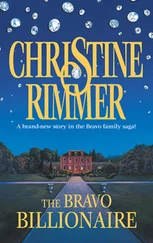“Sorry,” she said.
He watched her in the half-light of the electric bulbs.
“No,” he said. “It’s I who should apologize, Mrs. Shaw — it seems that I am late to this class. Have you already taken the register?”
She hesitated, then beamed. “Oh! I mean… well, as it happens, you are in time. I was just about to do it.”
He gestured at the rows of desks. “So may I…?”
“Yes… oh, yes, sit anywhere. No, actually — sit down here at the front where I can keep an eye on you.”
She invested her face with the appropriate severity. He took a desk in the front row. His knees came halfway to his chin when he sat in the tiny chair. He laughed. She frowned. “Settle down.”
From the drawer of the teacher’s desk she took a pencil and the register book, blew off the dust, and opened it to the first clean page. At the top she wrote: Sparrows Class, Spring Term, 1940 . She wrote Tom’s name on the first ruled line.
“Tom Shaw?”
“Present.”
“Splendid,” she said, looking at his name on the clean page. “Well, you are my first.”
“I’M QUITE SURE YOU’RE doing it wrong,” said Hilda, wincing as Mary dug the comb into her scalp.
“This preposterous hairdo is wrong. I’m following the instructions exactly.”
“Oh do give it here,” said Hilda, snatching American Vogue and jabbing at the illustration of Step 3. “See? It says to tease. And you are back-combing.”
“I am teasing.”
“You aren’t,” said Hilda. “And I should know.”
“Oh, do it yourself then, if you’re so good.”
Mary threw the comb onto Hilda’s dressing table, where it clattered against the china pigs she kept there. She lit a cigarette and flopped on the end of Hilda’s bed.
“All right,” said Hilda. “I’m sorry. Perhaps it just wants more lacquer.”
“I’ve used half the can already. It’s against nature.”
“You’re jealous I thought of it first.”
“Hardly, Hilda. What we see laid out in these instructions is not a hairdo. It is a folly.”
“Then it is a folly everyone’s wearing this season.”
“And therefore you suppose that officers will be attracted to it.”
“With all this hair spray, they’ll be lucky if they don’t become part of it.”
“You should carry emergency solvent, in case you need to unstick one.”
Hilda made a pleading face in the dressing-table mirror. “Don’t leave me half done like this. I look like Frankenstein’s mistress.”
“It’s an improvement.”
“Charming. Is this how you are with the children in your class?”
“Oh no, as Miss North I am sweetness and light. That’s why I have all this frustration to take out on you.”
“Have you any more pupils yet?”
“Still only four. One mongol, one cripple and two who barely speak.”
“He has done you proud, that man of yours.”
Mary stubbed out her cigarette. “It will take time. More will come once the parents realize that there isn’t to be any bombing.”
“Still, if it were me I shouldn’t bother. It seems an awful lot of trouble to go to, opening a school for the sake of four no-hopers.”
“That’s the difference between us. I want a better world, you want better hair.”
“Hardly as an end in itself. I want the hairdo so I can get a man in uniform.”
Mary sighed, stood, and picked up the comb again. Hilda smiled at her in the mirror, and Mary returned the favor. “Your face is not entirely dreadful to behold, you know,” she said, angling Hilda’s head. “You might almost pull off this look, in conditions of very low light.”
“Sadly your flaws as a friend would be visible in pitch dark.”
“You are indolent and asinine,” said Mary.
“You are obstinate and self satisfied,” said Hilda.
Mary worked as well as she could, segmenting the hair on the top of Hilda’s head into bands, front to back, and pushing each band in turn down to its roots with the comb until it developed sufficient body to bolster itself. It was rewarding work, what with gravity being such a bully and hair so plainly the underdog. Hilda’s scalp was warm and the air in her room pleasantly fogged with lacquer and cigarette smoke, while a fresh rain lashed the window and ran down the pane and caused Pimlico to warp and swim.
“And your mother?” said Hilda, after a while.
“Barely seen her in days. I had hoped to show her the school, now that I am no longer pretending, but she is too busy whoring for Father. He is set on becoming a Cabinet minister, and of course there are luncheons and functions.”
“I’d murder to have your mother. If mine has ambition then it is somewhere at the back of a drawer.”
“Yes but here is the war — don’t you see? — shaking everything up. Father’s world seems so small now. All those closed committees of men who were at school together. All the beaming wives competing. All of us daughters racing for husbands when the trap opens. Glossy fillies that we are, keeping dutifully in our lanes.”
Hilda fixed her in the mirror. “Just so long as you stay out of mine.”
“Careful, Hilda — remember who has the hairpins.”
“Well don’t come crying when you grow out of your little pauper.”
“Tom is hardly poor.”
“He lives in an attic, for pity’s sake. You told me so yourself.”
“Yes, but—”
“An attic, Mary. I’m sure you don’t love him at all. You only love the idea of your mother’s face when she meets him.”
Mary ignored her. She layered the bands of aerated hair, starting at the back and working toward the forehead to make a gratifying mound.
“It’s the same reason you write to that Negro,” said Hilda. “It’s to say to your mother, ‘Look at me!’ If I were you I would simply go to her lunches and dinners. Smash the teacups if you must. Kiss the Minister of Aircraft Production. But at least do it when your mother is jolly well watching.”
Mary fixed her with a pitying look. “I write to Zachary because he is a human being.”
“Is that what you told his father? He must have been impressed.”
Mary turned Hilda’s head left and right in the mirror, a little more sharply than was absolutely necessary. “I told him that he might consider bringing his child home. And that I could assure him of a school place, with a shelter in the event of any raid.”
“Did he look at you like this?” said Hilda, making a rubbery grimace and widening her eyes to make saucers of incomprehension.
“He wore a coat and tie like any man, and received me very civilly.”
“Did you make him presents of colored glass beads?”
“He told me about his life in America.”
“And counted the spoons when you left.”
Mary gave Hilda’s hair a last blast of spray to set it. “Your attitude is just like society’s.”
“Oh good,” said Hilda.
Mary lifted the hand mirror so Hilda could see herself from the back.
“Interesting,” said Hilda.
“What is?” said Mary.
“Nothing,” said Hilda, supposing that it would have to do until she could get to the salon.
IN THE GARRET TOM lay back against the bolster and drew on the cigarette Mary put to his lips. The cigarette’s pull lit them up, flaring and fading again.
Outside, wardens policed the blackout. Light, which had always united the city in a universal glow, had shrunk back into points. It was its old self again: a privateer, a dweller in nooks. People sheltered flames from drafts. Shadows grew by accretion, thickening nightly, as if the day wouldn’t rinse off the dark.
Читать дальше












